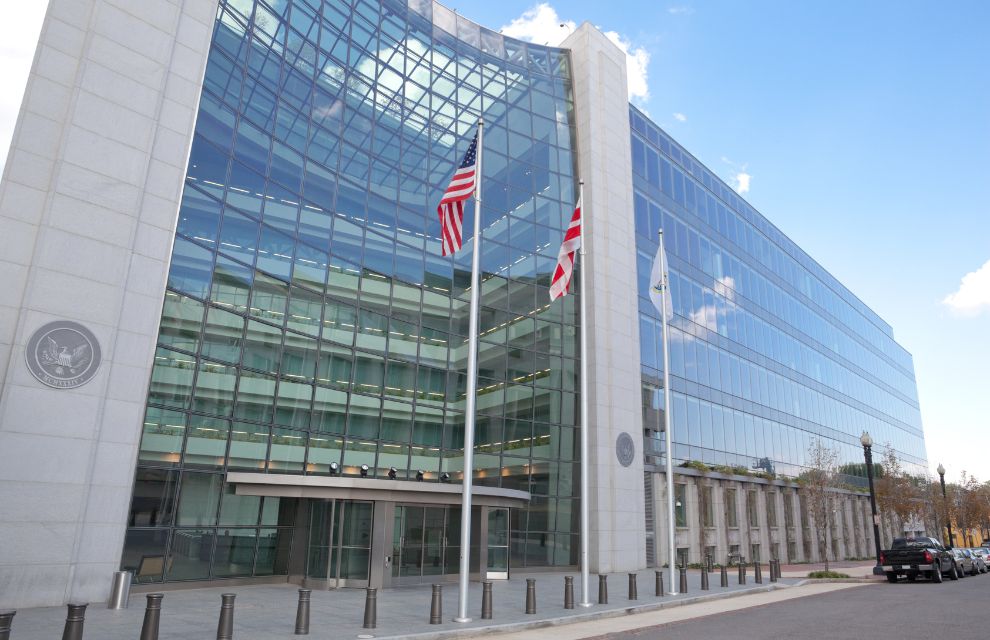The US Securities and Exchange Commission aims to raise minimum liquidity requirements for money market funds in a step to strengthen MMF liquidity buffers as protection against a surge in investor redemptions.
As part of a wider package of rule changes, the US securities market regulator will also end the current flexibility that MMF managers have to apply ‘redemption gates’ to their funds, allowing a temporary suspension of investor redemptions, if weekly liquid assets fall below a specified threshold.
These amendments, the SEC says, are designed to reduce the risk of investor runs on MMFs during periods of market stress by boosting MMF liquidity, improving transparency and reinforcing anti-dilution practices.
The rule changes will require MMFs to hold a larger proportion of their total assets in securities that can be liquidated in less than one business day, and also to increase their percentage of holdings in assets that can be liquidated within five business days.
They will also remove the opportunity for managers to apply redemption gates which prevent investors from redeeming from the fund in stress conditions. This will reverse changes introduced in 2014 — offering the opportunity for an MMF to suspend investor redemptions when the fund crosses a specified liquidity threshold.
Retrospectively, some Commissioners have argued that these provisions, introduced as pre-emptive measures to contain a potential run of withdrawals from MMFs, may instead have provided an incentive for investors to withdraw their investments from institutional prime money market funds in March 2020 with the onset of the Covid pandemic.
The proposed rule changes will also require institutional prime and institutional tax-exempt MMFs — funds that serve institutional investors rather than retail investors — to apply liquidity fees on investors that wish to redeem from MMFs in periods of market stress.
According to the SEC, these liquidity fees will help to ensure that redeeming investors, rather than investors that remain in the fund, bear the cost of redemptions.
The Commission observes that these funds, which have faced the largest redemptions in previous times of stress, currently represent approximately 11 per cent of funds in the MMF sector. Under current rules, these are funds that apply a floating net asset value, where institutional investors may redeem at a value other than US$1.00 per share — in cases where the fund ‘breaks the buck’.
In response to industry feedback, the SEC clarifies that these final rules will apply liquidity fees, as indicated above, and not swing pricing as originally proposed.
Commenting on the rule changes, SEC chair Gary Gensler observes that the US money market fund industry, which is currently close to US$6 trillion in size, provides Americans with a deposit alternative to traditional bank accounts. “By investing in these funds, investors can get market-based returns, fully backed dollar-for-dollar by readily marketable securities,” he says.
However, Gensler raises concerns that MMFs have a potential structural liquidity mismatch. Investors can redeem from the fund on a daily basis, even though the fund may be invested in securities which do not offer daily liquidity.
“As a result, when markets enter times of stress, some investors — fearing dilution or illiquidity — may try to escape the bear,” he says. “This can lead to large amounts of rapid redemptions.”
“Given the market events of March 2020, I think it is important to take further action to manage these risks,” Gensler continues. “The President’s Working Group and Financial Stability Oversight Council reports under different Treasury secretaries and presidents have highlighted these issues as well.”
While the rule amendments have been broadly endorsed by some SEC commissioners, others have voiced their reservations about some provisions in the package of rule changes.
Commissioner Hester Pierce comments: “Having seen in 2020 that one regulatory mandate for money market funds did not work, we now grasp for another — mandatory fees for institutional prime and institutional tax-exempt funds.
“Much like an air dancer — the inflatable tubular figure dancing to drum up business for a tire or furniture store near you — the Commission has the habit of lurching from one side to the other when regulating money market funds, and so it is with today’s amendments.”
According to Commissioner Mark T Uyeda: “Unfortunately, it appears the Commission is poised to repeat the errors of the past. This time it may even be worse, as the final rule amendments add a previously undisclosed mandatory liquidity fee that is triggered when net redemptions exceed 5 per cent of net assets.
“This mandatory liquidity fee replaces the proposed swing pricing requirement, but was not described in detail to the public and, thus, unlike in 2014, the Commission does not have the benefit of extensive public comment.”
These rule amendments will become effective 60 days after their publication in the Federal Register, with a tiered transition period to enable funds to comply with the amendments.


